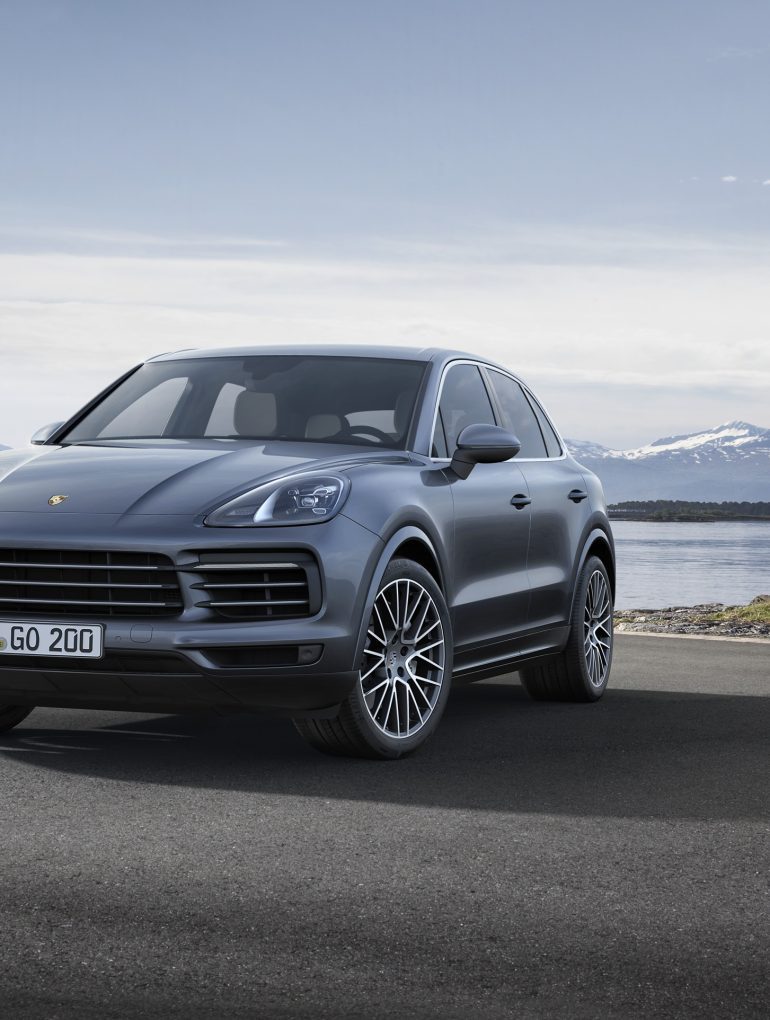Porsche has chosen the Montreal International Auto Show to unveil its all-new Cayenne.
The third-generation Cayenne was unveiled to the crowds in Montreal at the show, which takes place from the 19th-28th January, 2018.
Porsche is keen to highlight the influence the company’s iconic 911 has had on the Cayenne SUV. Other additions to this generation of Cayenne aimed at giving it a sporting lilt include mixed tyres and rear-axle steering for the first time in the model’s history.
That’s not all that’s new though – the new Cayenne also gains a new eight-speed Tiptronic S gearbox and a new chassis, alongside three turbocharged power plants.
The standard Cayenne is powered by a 3-litre turbo V6, producing 340hp for a 0-60 dash in 6.2 seconds. Cayenne S receives a smaller but more mighty 2.9-litre twin-turbo V6 – good for 440hp and 0-60 in 5.2 seconds.
The one we’re most interested in however is the 550hp 4-litre twin-turbo V8. This launches the Cayenne Turbo to 60mph in 4.1 seconds.
In all variations, the addition of what Porsche calls the Sport Chrono Package knocks 0.2 seconds off the 0-60 time, meaning the top-of-the-range Cayenne Turbo can manage the sprint in less than 4 seconds in Sport Chrono trim.
Stopping power is enhanced over the previous Cayenne, too. This model, Porsche claim, is the first SUV to feature an adaptive roof spoiler, which increases downforce and acts as an active air brake.
This, combined with Porsche Surface Coated Brakes fitted to the Cayenne allows the SUV to go from 155mph to a standstill two metres earlier than it would without the roof spoiler.
The 2019 Cayenne hits Canadian dealerships in late summer, according to Porsche, with prices starting from $75,500 and rising to almost double that – $139,700 – for a Cayenne Turbo.
Busy marketplace
Porsche practically invented the idea of the money-pot super-SUV with the first-generation Cayenne. Given the higher profit margins on these behemoths, automakers can use them to increase their take on every sale, which can be used to fund research into technology for halo projects like the hybrid Porsche 918, as well as to prop up the development of less profitable but more cutting-edge of technology sports car products.
Since 2002, when the first Cayenne was introduced, many other premium brands have gotten in on the act. Bentley, with its Bentayga, joined the ranks back in 2016, but Audi also have a twin-turbo super Q7. Range Rover created a ballistic missile with the five-litre V8 SVR variation of its ultra-lux SUV. Even Lamborghini will soon get in on the act with the Urus, and Ferrari CEO let slip recently that there will be a Ferrari SUV possibly by the end of the decade.
This increased competition means that Porsche has to get the third-generation Cayenne right if it is to continue to succeed in an altogether more crowded marketplace.




